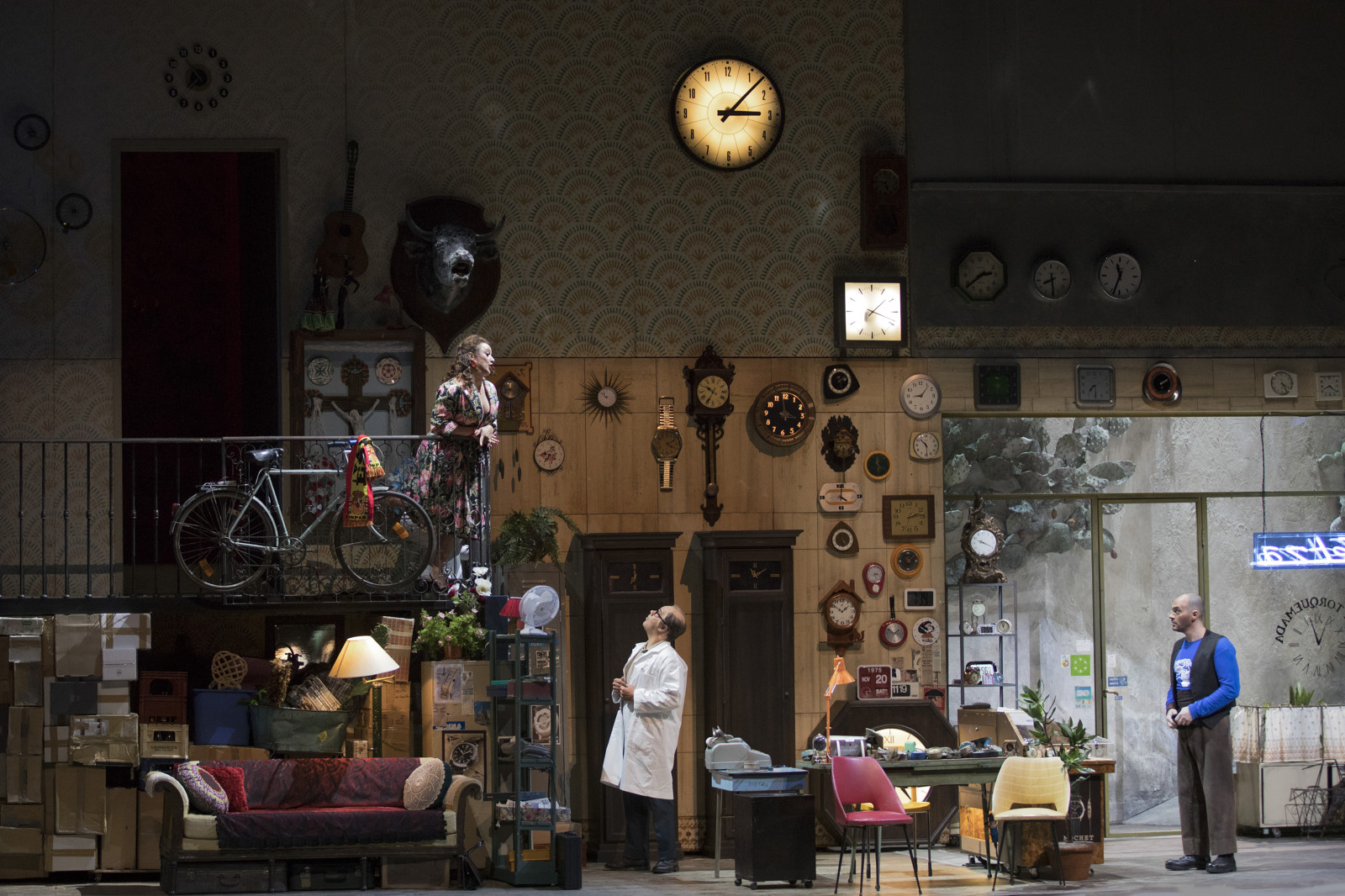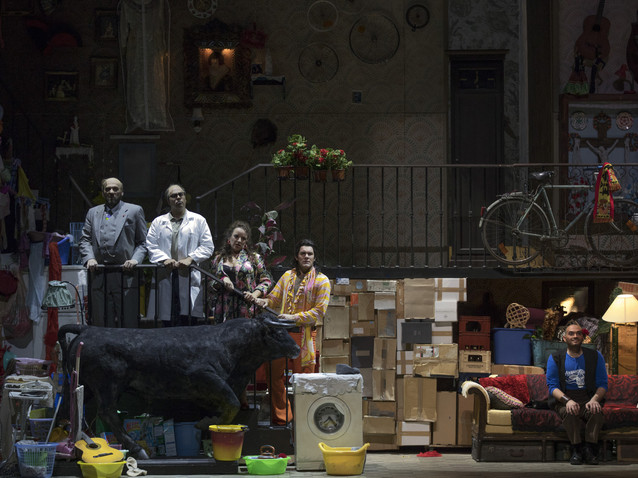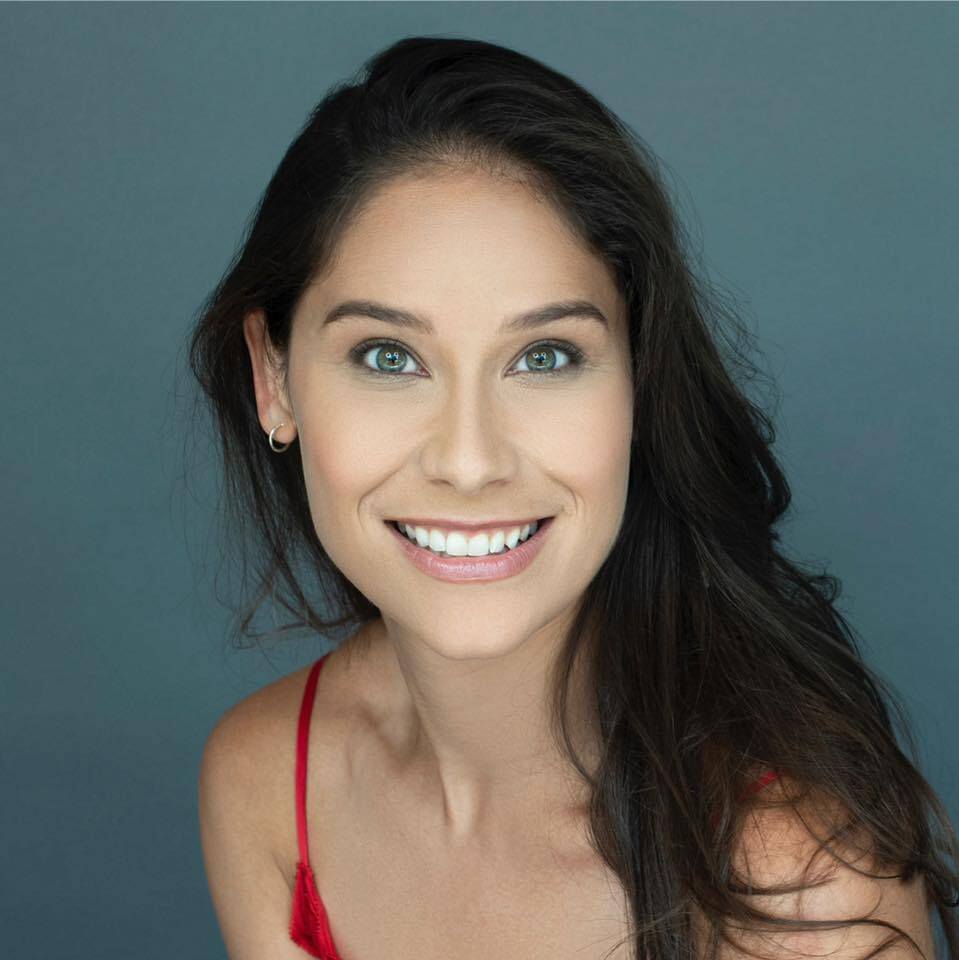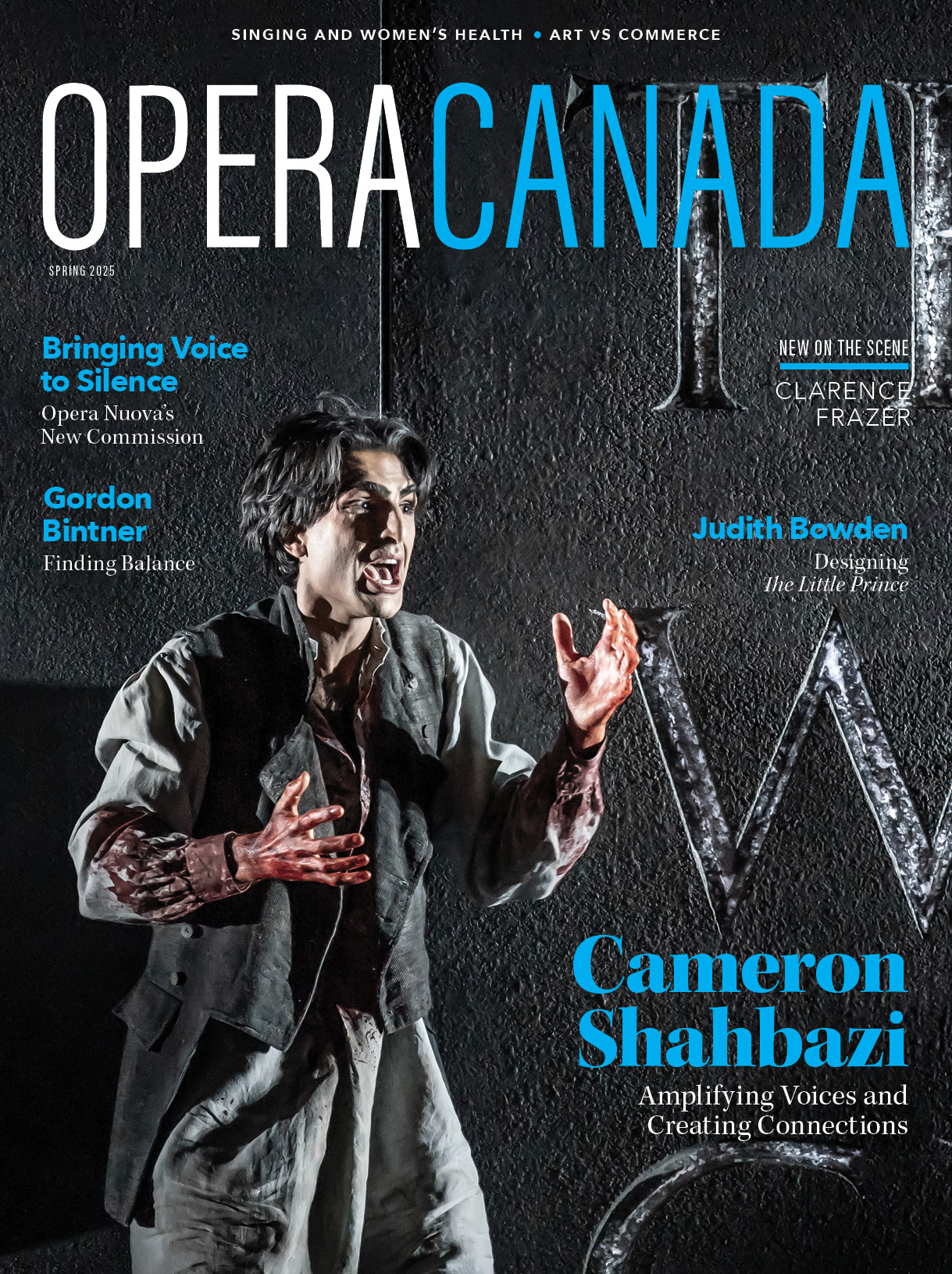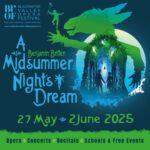Fourteen years after its first run at the Palais Garnier in 2004, French director Laurent Pelly’s double bill: L’heure espagnole and Gianni Schicchi, has been unpacked, moved across town to the immense Bastille venue, and re-staged without a crease (seen May 30). It has proven to be one of the most delightful productions of the Paris Opera’s 2018 season, also thanks to a brilliant young cast under the very promising musical direction of the 32-year-old Maxime Pascal. Born in Nantes, France, this rising star handled the two contrasting scores with astonishing control, first highlighting Ravel’s lush orchestration with its array of jotas, habaneras and malagueñas, then plunging into Puccini’s sumptuous lyricism with equal ease.
Described as an opéra bouffe by Ravel, L’heure espagnole is based on the 1904 play of the same name by Franc-Nohain. The original play is set in 18th-century Spain and tells the story of a clockmaker whose unfaithful wife takes advantage of his absence to receive her suitors. The title can be translated literally as “Spanish Time”, with the connotation “How They (ladies) Keep Time in Spain.” The work premiered at the Opéra-Comique in 1911 where it was double-billed with Jules Massenet’s French Revolution drama Thérèse. L’heure espagnole was performed for the first time in Canada in 1961 at the Festival de Montréal, an arts festival founded by Wilfrid Pelletier, held annually from 1936-1965.
Laurent Pelly transposes L’heure espagnole to the middle of the 20th century where we meet the clockmaker Torquemada (the excellent tenor Philippe Talbot) surrounded by sundry Spanish-flavoured objects: a bull, a guitar, colourful fans…There is a corner packed with dirty laundry and of course all manner of clocks and watches, in particular, three Grandfather clocks in which Torquemada’s fickle wife, Concepcion, will hide her lovers.
The entire cast is French speaking, which gives them an edge when it comes to Ravel’s meticulous setting of their mother tongue. Apart from the role of Gonzalve—sung with stunning versatility by tenor Stanislas de Barbeyrac, who injects his serenades and cavatina with deliberately exaggerated lyricism—the other parts are more declamatory, where good diction is primordial. Ravel cited Mussorgsky’s Zhenitba (The Marriage, 1868) as an inspiration for his style of word setting and the Russian’s unfinished opera, based on an absurdist comedy by Nikolai Gogol, is likewise a satire of courtship and infidelity featuring a frivolous young woman wooed by several lovers.
Bass Nicolas Courjal is delightfully ridiculous as Don Iñigo Gomez—believe it or not, he also sings a regal Philippe II (Marseille, 2017)—a singer of protean capacities. Jean-Luc Ballestra as Ramiro happily moves the massive oak clocks according to the whims of his hostess and wins her and our hearts with his ringing baritone and brut charm. Mezzo-soprano Michèle Losier is more than at ease in the demanding part of Concepcion, which she sings with nuance and beautiful timbre. Thankfully, she doesn’t make the role slapstick or flamboyant but rather, uses her sharp comic timing to synchronize with her partners thus bringing out all the subtleties of Ravel’s work. The final quintet was absolute perfection.
For Gianni Schicchi Florence Evrard and Caroline Ginet’s clever set transforms into the home of the rich Donati family and though slightly tidier than that of the Spanish clockmaker, it is likewise crowded with wardrobes, buffets, trunks and suitcases piled up behind the bed of the deceased Buoso. In the background, a cardboard skyline of Florence can be seen with its bell towers and parapets.
Back once again are Jean-Luc Ballestra, this time as Marco, Nicolas Courjal as Betto and Philippe Talbot as Gherardo, all three in top form. In smaller roles, Maurizio Muraro (Simone), Emmanuelle de Negri (Nella) and Isabelle Druet (La Ciesca) were both comically conniving and greedy. Rebecca De Pont Davies, her hair in curlers, is endearing as the cantankerous old auntie, Zita.
The cast also included a remarkable contingent of Polish singers who attest to the excellence and vivacity of the operatic tradition in their country starting with baritone Artur Ruciński in the title role, diabolically good as Dante’s original ventriloquist and trickster ; baritone Tomasz Kumiega as the notary, baritone Piotr Kumon as Guccio and bass-baritone Mateusz Hoedt as Pinellino.
With her fresh and shimmering voice, French-Danish soprano Elsa Dreisig is the perfect Lauretta; her “O mio babbino caro” was definitely the show-stopper of the evening. Rinuccio is pure Vittorio Grigolo or Grigolo is pure Rinuccio—whichever came first, it’s mint quality.

